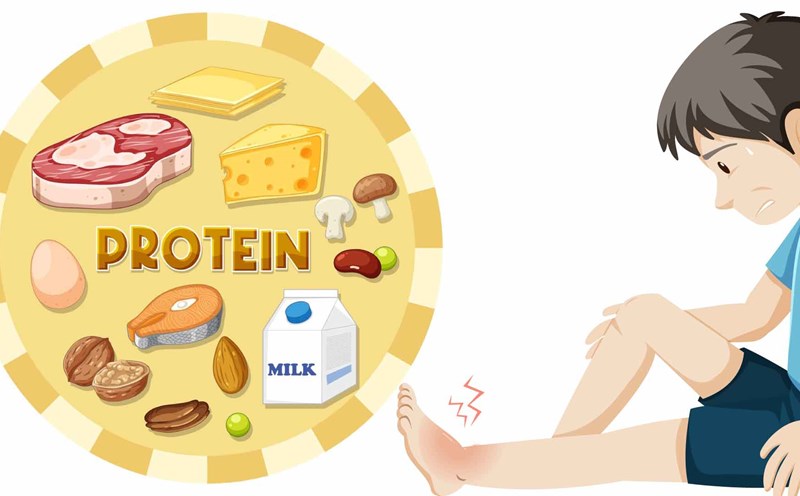According to Anusha Jain, nutritionist and founder of nutrition brand Nutri Maven (India), protein is an essential nutrient, playing a fundamental role in building muscle, supporting growth and maintaining overall health. Each age group needs to have its own strategy to supplement enough protein.
Children need protein for development
In the early stages of life, protein is an indispensable component for growth and development. Newborns need about 8-10.5g per day, while babies need about 11.3g. When older, the demand increases: from 4-6 years old is 16g/day, adolescents need 34g and in adolescence, boys need to be 52g and girls need 46g.
A protein-rich diet for children can be easily built from traditional dishes such as lentils, paneer cheese, yogurt, eggs, chicken. Nutritionist Anusha Jain suggests simple tips such as adding ghee to roasted nuts, or cooking dishes from green lentils to increase protein intake.
Adults: Balance between needs and lifestyle
For adults, protein intake should range from 0.8 to 1.2g/kg of body weight. On average, men need about 56g and women about 46g per day. This number can increase if you are pregnant or breastfeeding.
Protein supplementation can start with easy-to-find foods like lentils, bean sprouts, paneer cheese, and ragi roti. A glass of avocado milk after meals or adding peanut butter to your menu is also a useful way to increase your daily protein intake.
Elderly people: Preventing muscle loss, increasing resistance
For the elderly, protein helps maintain muscle mass and boost immunity, which is a particularly important factor in reducing the risk of disease. The recommended intake for this group is 60-70g per day, depending on the level of exercise.
soft, easy-to-eat dishes such as khichdi (mixed tofu), yogurt, and cheese are recommended. In addition, a glass of warm turmeric milk with pickled almonds in the evening can effectively support physical recovery.
According to Jain, prioritizing natural protein sources and whole foods is the best way to support the digestion and absorption of nutrients.
"Selecting the right foods and adjusting the appropriate portion sizes for each stage of life helps build a healthy body, increase resistance and improve quality of life," Ms. Jain emphasized.











